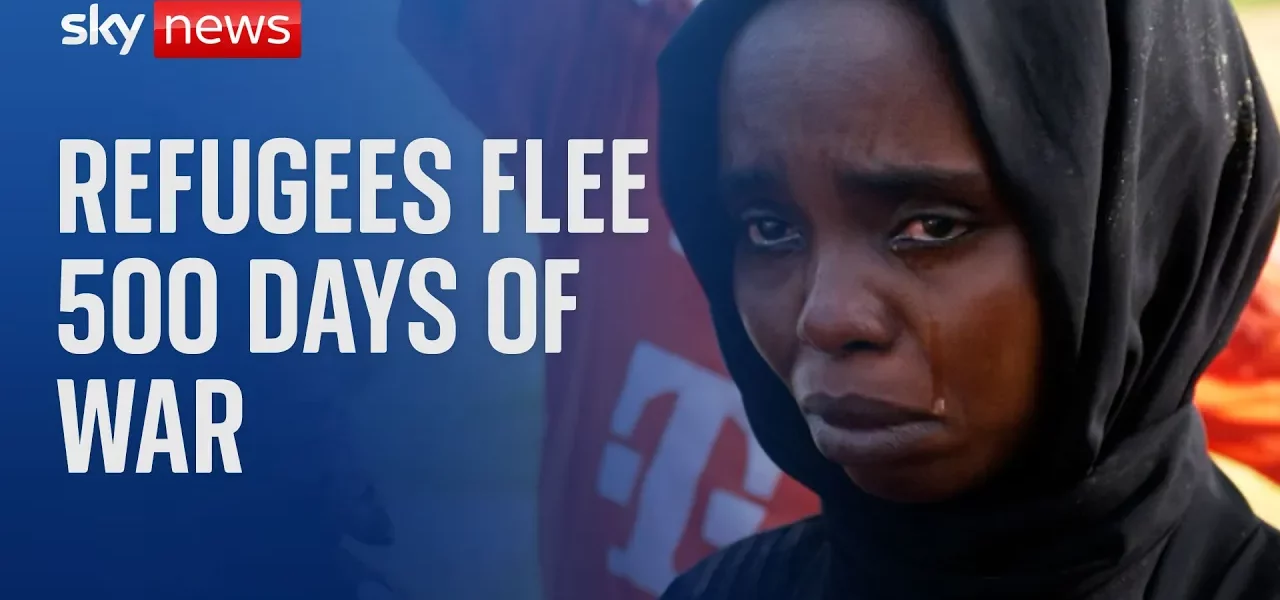The Rainy Season Won’t Stop Refugees from Crossing into Chad

The ongoing humanitarian crisis in Sudan has forced many individuals to seek refuge in Chad, despite the challenges posed by the rainy season. This article delves into the conditions faced by these refugees as they flee violence, hunger, and instability in their home country.
Introduction
As the rainy season drapes Eastern Chad in a cloak of water and mud, the desperation of Sudanese refugees becomes painfully evident. Many are risking their lives to cross the border, seeking safety and a chance for a new beginning away from the violence that has plagued Sudan. The border area, known for its bustling trade of goods and arms, has seen an influx of vulnerable individuals, including women and children, striving to escape the turmoil of war. This article explores their harrowing journeys, the challenges they face, and the dire humanitarian situation that unfolds in Chad.
Challenges Faced by Refugees
The journey to Chad is fraught with peril, particularly for those fleeing the violence in Sudan. Many make the crossing via precarious boats, navigating flooded waterways and militia checkpoints. This section will detail the significant challenges that refugees encounter.
Unsafe Crossings
Many refugees are compelled to undertake dangerous crossings, including:
- Risk of drowning due to flooded rivers.
- Encountering armed militias that threaten their safety.
- Traveling in unsafe boats that are overcrowded and poorly maintained.
Vulnerability of Refugees
The demographics of those crossing into Chad are particularly concerning. Vulnerable groups include:
- Women, often pregnant or with young children.
- Children who are susceptible to illness and starvation.
- Families separated due to the chaotic nature of their escape.
Life in Transit Camps
Upon arriving in Chad, many refugees are placed in transit camps, such as Tulum Camp, which has become a refuge for those displaced by ongoing violence in Darfur. Despite the temporary safety these camps provide, they are plagued with their own challenges.
Food Scarcity and Health Issues
Food scarcity is a pressing issue in transit camps, leading to malnutrition and health crises among children and adults alike. Key points include:
- Limited food distribution exacerbates hunger.
- Malnutrition rates are alarmingly high among infants and children.
- Inadequate healthcare facilities contribute to worsening health conditions.
Humanitarian Appeal and Resource Strain
Chad is one of the poorest countries globally, yet it has taken in a significant number of Sudanese refugees. The strain on resources is evident:
- Humanitarian appeals are frequently underfunded.
- Local populations are experiencing their own food shortages.
- Increased tensions lead to protests and civil unrest within the camps.
Community Tensions and Protests
As resources dwindle, tensions between local residents and refugees have escalated, leading to protests for additional aid and support. The response to these protests has often been heavy-handed.
Violent Backlash Against Protests
Residents and refugees alike have faced violent reprisals for demanding basic necessities:
- Reports of police using tear gas and brute force to disperse crowds.
- Incidents of violence reminiscent of the conflicts they fled.
Calls for International Support
The situation calls for urgent international attention:
- Advocates urge for increased humanitarian assistance.
- Support for local and international NGOs working on the ground is essential.
- Efforts to address root causes of displacement must be prioritized.
Conclusion
The plight of Sudanese refugees crossing into Chad highlights a critical humanitarian crisis that demands immediate attention. As they navigate the challenges of displacement, hunger, and violence, it is vital for the international community to provide support and resources. Awareness and action can make a significant difference in the lives of these individuals seeking safety and a better future. Learn more about the refugee crisis and how you can help.
“`




